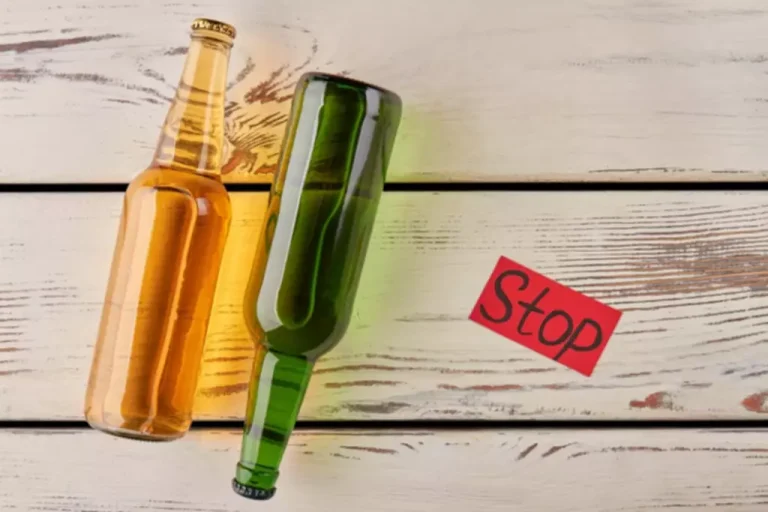
Like with all drugs, long-term alcohol abuse creates changes in the brain’s biochemistry. This is a topic that continues to be of great debate in our society. While many consider alcoholism, or any addiction for that matter, to simply be a lifestyle choice, researchers and addiction specialists classify alcoholism as a chronic brain disease. Ultimately, sobriety is the responsibility of the person who has the alcohol addiction. It’s important to not enable destructive behaviors and to maintain appropriate boundaries if the person with the alcohol addiction is still drinking.
Treatment for Alcohol Addiction
Health care providers diagnose AUD when a person has two or more of the symptoms listed below. AUD can be mild (the presence of two to three symptoms), moderate (the presence of four to five symptoms), or severe (the presence of six or can alcoholism be cured more symptoms). The good news is that no matter how severe the problem may seem, most people with AUD can benefit from some form of treatment. Many others substantially reduce their drinking and report fewer alcohol-related problems.
- This causes the body to crave alcohol to feel good and avoid feeling bad.
- At the same time, the body’s water content decreases, and we lose muscle mass, which leads to a higher concentration of alcohol in the bloodstream.
- This form of therapy is focused on identifying the feelings and situations (called “cues”) that contribute to heavy drinking and managing stress that can lead to a return to drinking.
- A support group can help you connect with other people who’re facing similar challenges.
Physical and Occupational Therapy
You may want to learn if the program or provider offers medication and whether mental health issues are addressed together with alcohol treatment. According to the Medical News Today article titled “Understanding and treating alcoholic neuropathy” alcohol impedes the processing, transportation, and absorption of essential nutrients. Some people with alcohol use disorder also have inadequate food intake. Some people frequently abuse alcohol without developing a physical or psychological dependence to it; however, they too can benefit from treatment for alcoholism recovery.
What is the outlook for people who have alcohol use disorder?
Counseling helps patients cope with the emotional and psychological challenges of alcohol cessation. Support groups, such as Alcoholics Anonymous (AA), provide a community of individuals facing similar challenges, which is instrumental in maintaining sobriety and preventing relapse. Addressing the psychological aspects of alcohol abuse is crucial for long-term recovery and preventing relapse.
Ways To Manage And Cope With Alcoholism
- Combining therapy with support groups can greatly improve your odds of success.
- When this happens, the individual or family members may hope for an easy way to end the problem through providing treatment that leads to a cure.
- The study underlined that there is currently no scientifically proven, commercially available treatment for hangovers.
According to the research, dehydration from alcohol consumption occurs because alcohol activates the hormone system responsible for regulating blood pressure, fluid, and electrolyte balance. This hormonal activation leads to the loss of water and electrolytes, which causes the common symptom of thirst the next day. People who are not alcoholic sometimes do not understand why an alcoholic can’t just “use a little willpower” to stop drinking. Alcoholics are in the grip of a powerful “craving,” or uncontrollable need, for alcohol that overrides their ability to stop drinking. About 80 percent of all people with long-term alcoholism develop this condition due to the way their body becomes starved of thiamine from poor nutrition.
How long does it take for your liver to heal?
But statistically, you’re more at risk if you drink heavily on a regular basis for an extended period of time. Heavy drinking means different things for men (and people AMAB) and women (and people AFAB). For people assigned male, it’s about four standard drinks a day or more than 14 drinks per week.
What is alcohol use disorder, and what is the treatment?

According to the NIAAA, alcoholism can never be cured, but with the right sort of treatment and follow-up care, it can be effectively managed. This means there is no reason why an alcoholic cannot go on to live a healthy, happy life while remaining alcohol free. Treating alcoholic neuropathy involves a comprehensive approach that combines medical, therapeutic, and lifestyle interventions. According to the article “Alcoholic Neuropathy” written by Sadowski. Al. 2022, published by the National Institutes of Health, treatment focuses on alcohol abstinence, nutritional support (especially B vitamins), pain management, and physical therapy. Vitamin supplementation alone is generally not sufficient if alcohol use continues.

- If you feel that you sometimes drink too much alcohol, or your drinking is causing problems, or if your family is concerned about your drinking, talk with your health care provider.
- The Reframe app equips you with the knowledge and skills you need to not only survive drinking less, but to thrive while you navigate the journey.
- As the consumption of alcohol increases because a person’s tolerance to the substance has started to build up, the body will begin to adjust all of its processes to the presence of alcohol.
- Every food and drink you consume passes through your liver for processing.
Certain safe-substitute drugs, such as benzodiazepine, can only be administered in a hospital. A detoxification is considered only part of the treatment, as it only deals with the physical dependency on alcohol. People with this condition can’t stop drinking, https://ecosoberhouse.com/ even if their alcohol use upends their lives and the lives of those around them. While people with this condition may start drinking again, studies show that with treatment, most people are able to reduce how much they drink or stop drinking entirely.


Recent Comments